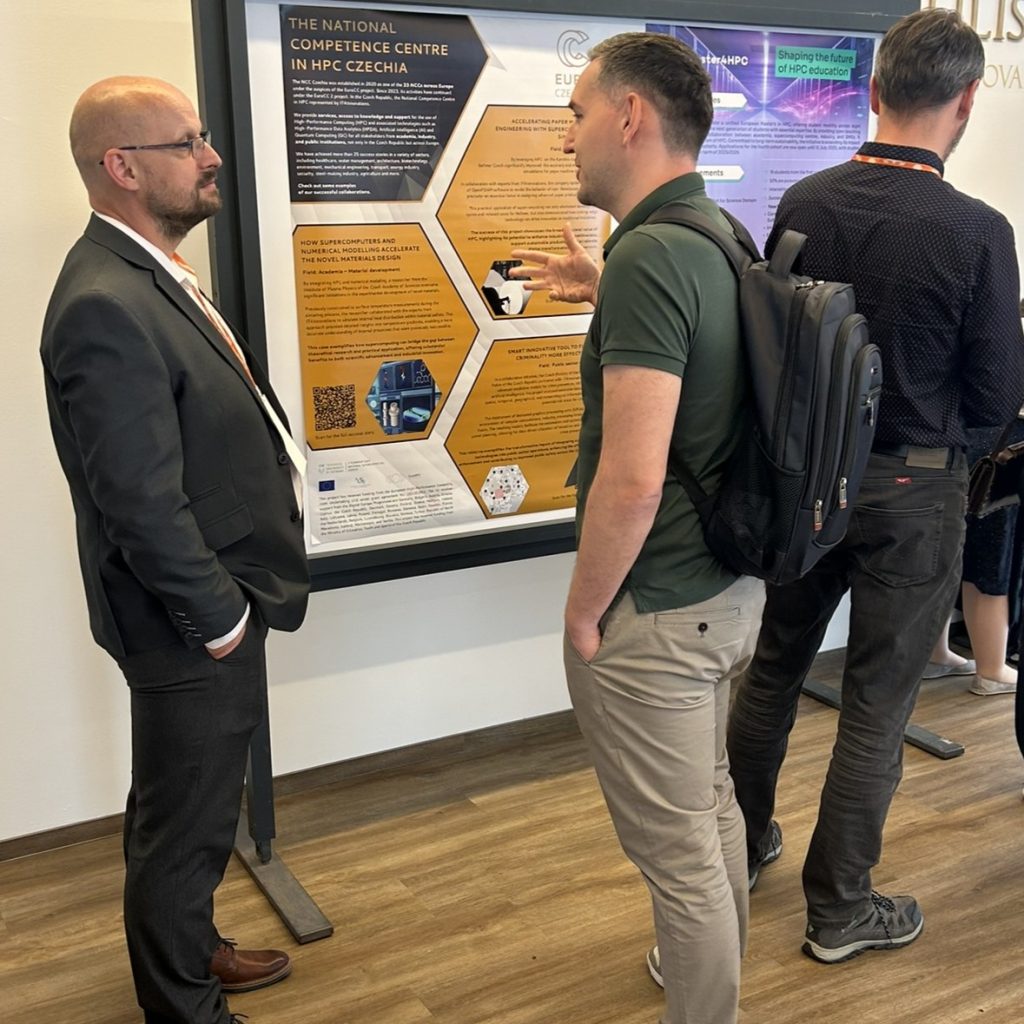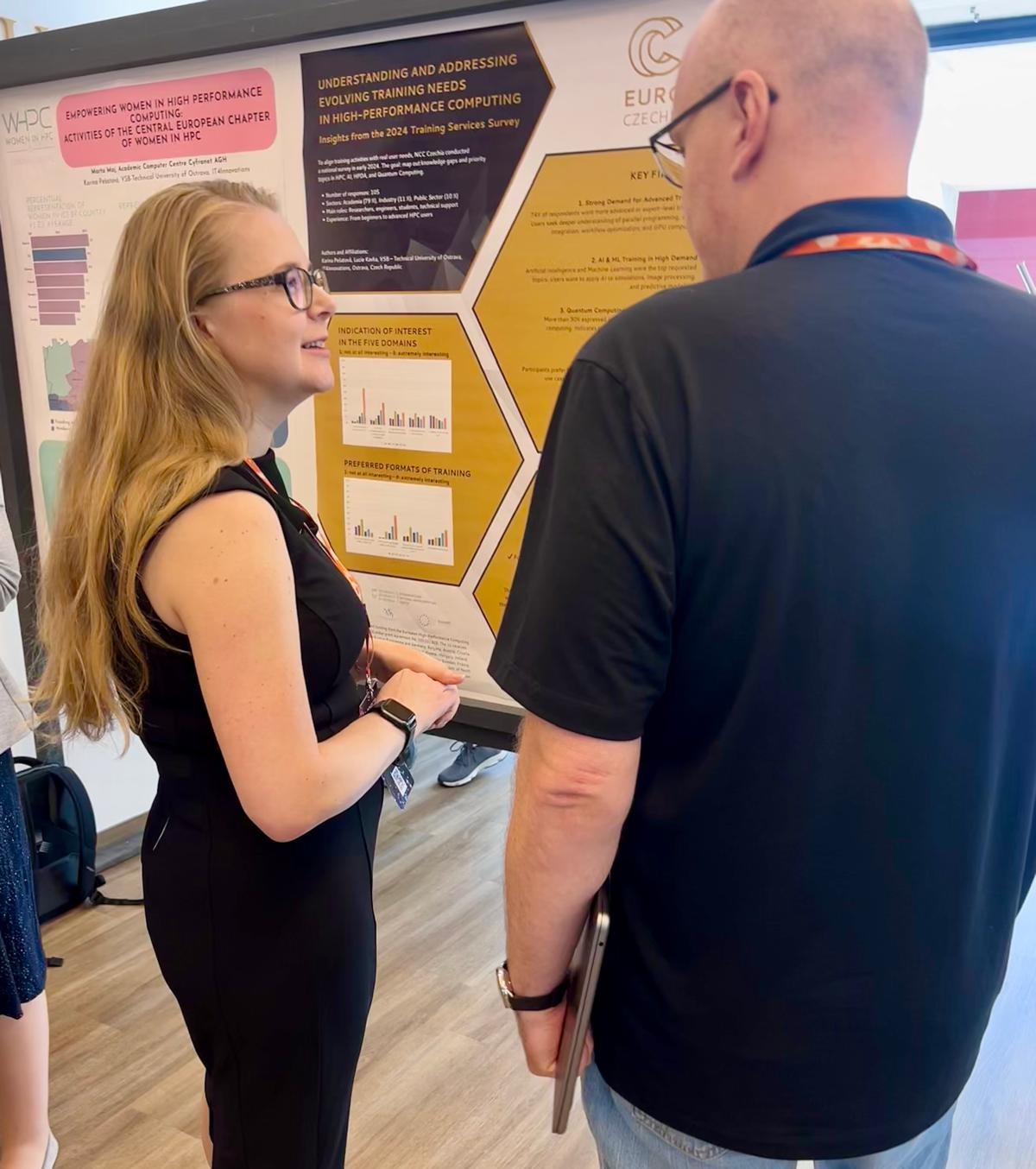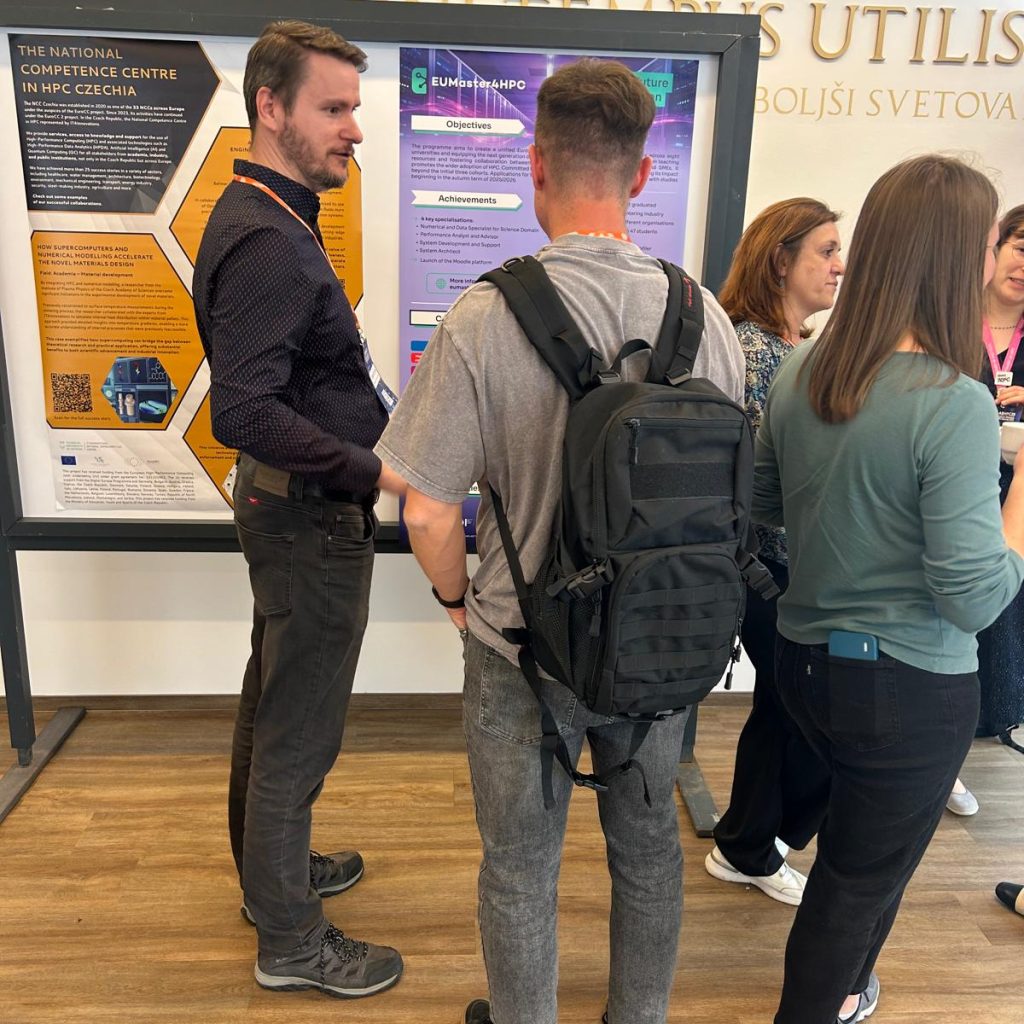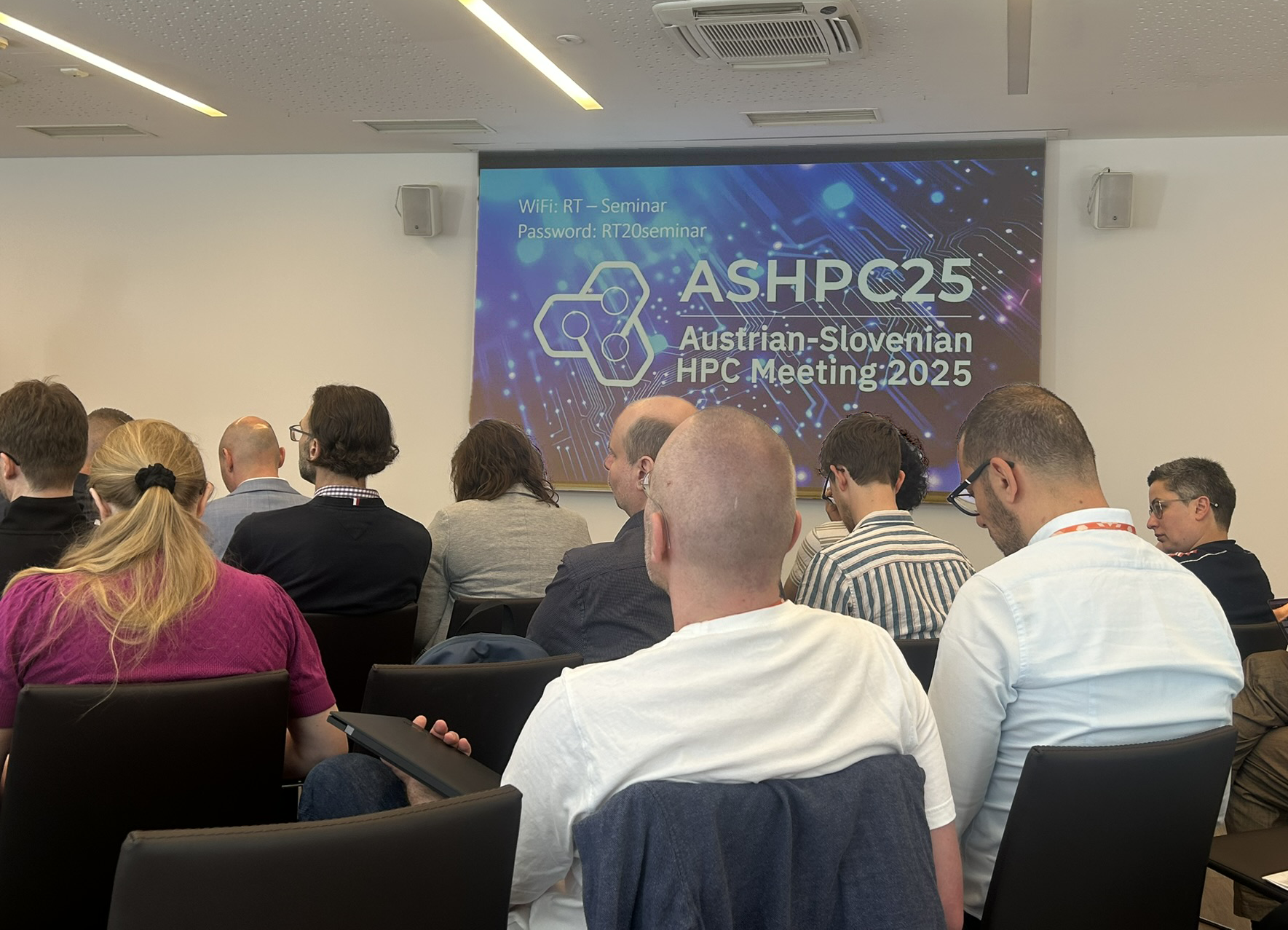The ASHPC25 (Austrian-Slovenian HPC Conference), held this year from 19-22 May 2025 in Rimske Terme, Slovenia, is one of the most crucial meetings of high-performance computing (HPC) experts in Central Europe.
The participation of the Czech National Competence Centre in HPC (NCC) offered an opportunity to show how we help connect computing power with the real needs of companies, research teams, and public institutions. Tomáš Karásek, Head of the NCC, presented three specific examples of collaboration during the programme:
- how simulations helped Bellmer Czech to speed up the development of paper machines,
- how calculations enabled the scientist from the Czech Academy of Sciences to better understand the processes involved in designing new materials,
- and how they helped the Ministry of interior and the Police to develop predictive models for more effective crime prevention.
Practical use cases of supercomputers impressed experts across Europe.

At the same time, we gained valuable information about the upcoming launch of this year’s round of FFplus grant calls for companies and startups interested in using supercomputing for their own projects.


Education by users: a survey that caught the eye
The results of the latest survey, mapping the educational needs of Czech supercomputer users, also generated a great deal of interest. It was created as part of the activities of the Czech NCC and presented by Karina Pešatová, Head of Training and Education at IT4Innovations National Supercomputing Center.
The results clearly showed that users are interested in hands-on, advanced training in artificial intelligence, machine learning, GPU computing, and introductory quantum computing courses.
New generation of experts: EUMaster4HPC
Tomáš Kozubek, IT4Innovations Scientific Director, presented the EUMaster4HPC – the first European MSc. study programme focused exclusively on supercomputing. The programme brings together top universities, research centres, and industry partners to produce experts who can tackle challenging computational tasks across disciplines.
Students get a double degree, access to supercomputers, and experience in international projects. Graduates are prepared to become key players in digital transformation – whether in research, industry, or the public sector.
Women in HPC: Gender balance as a path to better science
Karina Pešatová from IT4Innovations also chaired a lively roundtable discussion of the Central European Chapter of Women in HPC on gender balance in supercomputing. The debate included not only women but also men who shared their experience on how to attract and retain more women in science. It was noted, among other things, that a diversity of perspectives enriches research teams – and that equal opportunities are not just a matter of fairness but also a path to innovation.





